Andrew Davie of Bear’s Den: the 10 records that changed my life
A Famous Blue Raincoat, Fleetwood Mac and eye-opening electronics

It’s appropriate, given their moniker, that in recent years London guitar/electronic duo Bear’s Den have carved out a corner of their home city for themselves and their ever-expanding gear haul.
Christened Josiah Booth Studios, it became the birthplace of new album So That You Might Hear Me - a record full of aural intricacies, synth experimentation and literary references that could only have been born out of a period of relative seclusion in the band’s newfound home.
“When we arrived and got it, it had these bright blue carpets and bright red walls and it was a bit gross and we couldn’t really deal with it,” explains frontman Andrew Davie.
“We immediately decided to paint the walls, and in the process of painting the walls, we peeled back all this sort of wallpaper and stuff and it revealed this amazing memorial plaque to the organist for the church that the studio was in: ‘In memory of Josiah Booth’. We were just like, ‘Well, you know, we haven’t really thought of a name, so let’s just call it Josiah Booth Studios.’”
The space has proved creatively fertile. So, while most of the recording was recorded in Seattle with indie production god Phil Ek (alongside engineer Garrett Reynolds), the fact that So That You Might Hear Me shows a significantly expanded range of sounds and ideas is thanks in no small part to a heap of new electronic gear vying for attention in their studio space.
“I play a 1974 Guild Starfire, which I love,” explains Andrew, when we ask him about his favourite gear.
“And Kev [Jones] has got an unbelievably beautiful Les Paul. In terms of amps, we have this weird Silvertone amp that’s really old and beaten-up but sounds amazing and a really nice AC30. I also have a 1965 Guild M20 acoustic, which is a really beautiful little guitar, sort of a parlour almost.
“Then on the more synth-y end of the spectrum, we got a [DSI] Prophet 6 recently. That’s getting a lot of love, and then I messed around a lot with [Teenage Engineering] OP1s and [Critter & Guitari] Organelles, a TR808 Drum machine. Basically, I wouldn’t say there’s a blueprint…”
The new album, due 26 April, will surely have a significant role to play in the Bear’s Den story, but for now Andrew has a grander purpose: to take us on a tour of 10 records that have shaped his life. A grand title, a big scheme… Andrew surmises it best: “Yeah… scary.”
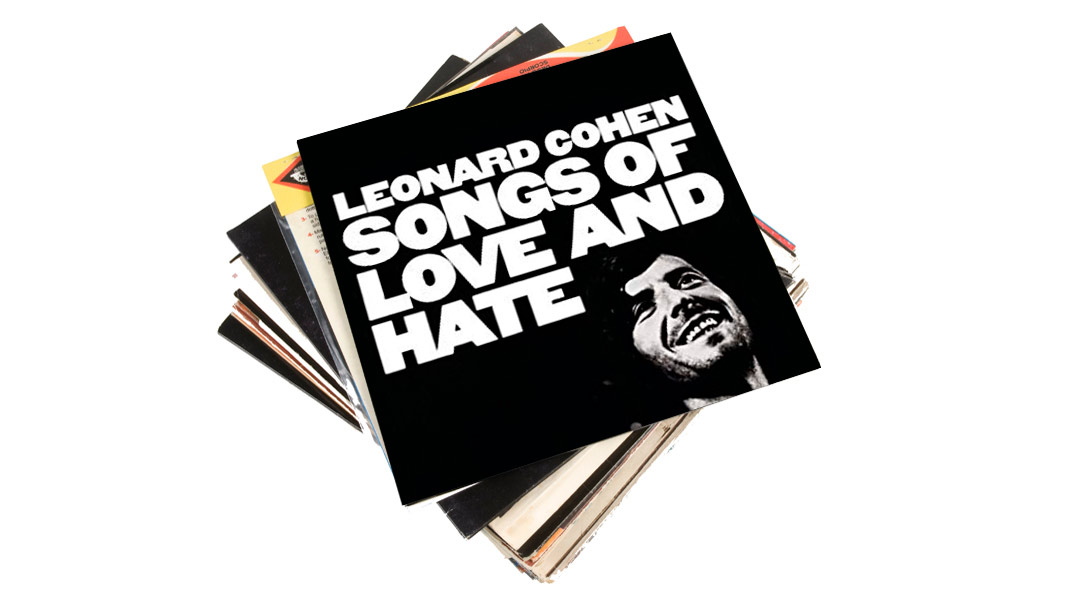
1. Leonard Cohen - Songs Of Love And Hate (1971)
“This is a big one for me. I think it was a real game-changing moment in [understanding] what songwriting is all about.
“How to describe it? I think it’s like when I first heard Famous Blue Raincoat, I think I was just like, ‘That’s the best thing I’ve ever heard.’ I don’t know how you write a song like that, but I’m really fascinated that it is even possible to write something that deep. There were just there were so many layers to it.
“And then also just how demanding the whole album is with so little and how much authority Leonard Cohen just had, naturally. It was just so inspiring that I think it really made me want to delve so much deeper into songwriting.
“The more you look, the more you find with Leonard Cohen, whereas often with people as artists, the more you look, the less interesting it becomes.”
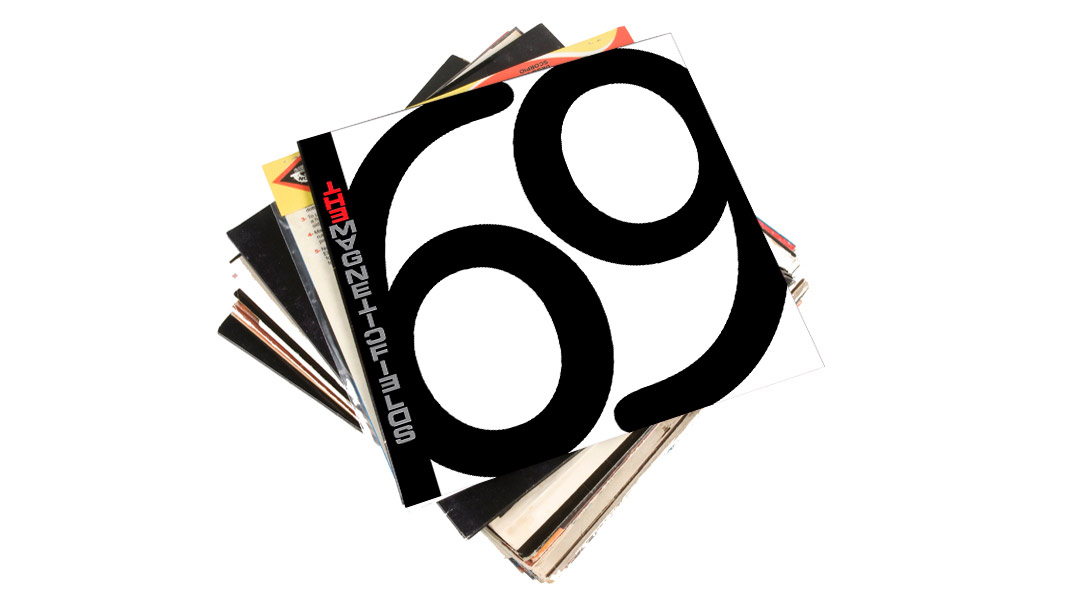
2. The Magnetic Fields - 69 Love Songs (1999)
“I have incredibly fond memories of this album. I think that this album, again, on a songwriting level alone is a bit awesome, [but there’s also this] random-as-hell production that scans across the whole thing. It was so unique and so interesting and became a really informative part of learning how to write songs for me.
“The lyrics are so hilarious, as well as sad and heartbreaking and the songs are just so ridiculously catchy, every time I listen to any part of it I have a new favourite song.
“Stephin Merritt has a real gift for like telling a story. There’s one song, in particular, on that record called Papa Was A Rodeo which I used to just listen to over and over again and I just think it’s such a beautiful song and almost in quite a childlike way, there’s something about it. It just hits a nerve.”
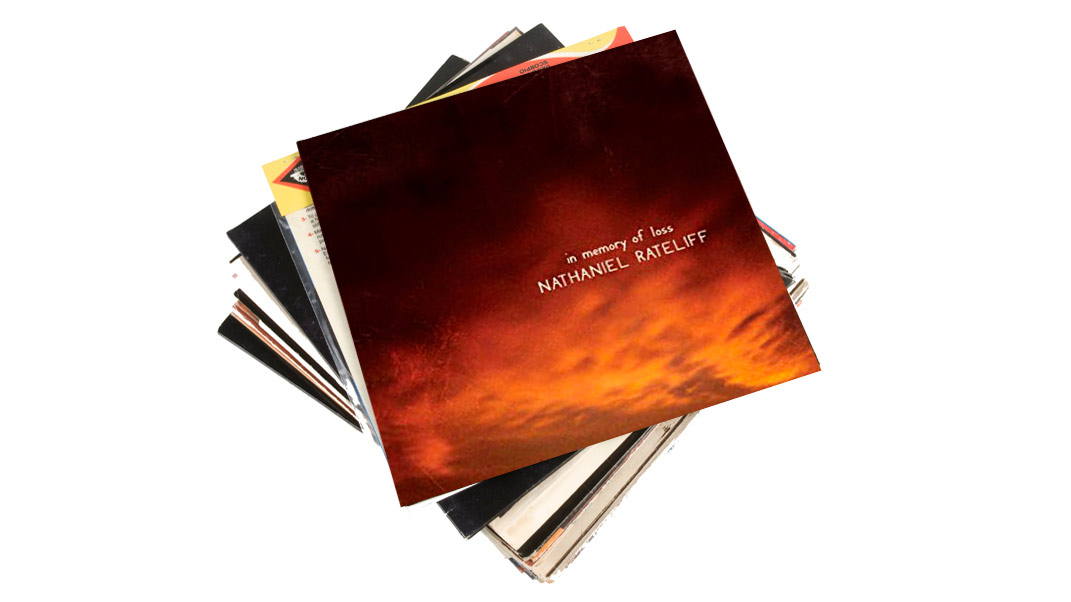
3. Nathaniel Rateliff - In Memory of Loss (2010)
“This is pre-Nathaniel Rateliff & The Night Sweats, his solo stuff, and it’s the first album of his I heard. We were really fortunate enough to be able to tour with Nathaniel. He’s an incredible songwriter, but his solo albums were just works of art.
“We were on the Austin to Boston Tour [together], which was this really fun tour where we were all in VW camper vans traveling from Austin to Boston. Just getting to watch him play every night, I think for Kev and I was like having a masterclass in how to write every day.
“I remember just having really good just conversations with him and just wanting to ask him stuff all the time to get advice. I remember having a probably very annoying sort of childlike need to just absorb as much information from him as possible really…”
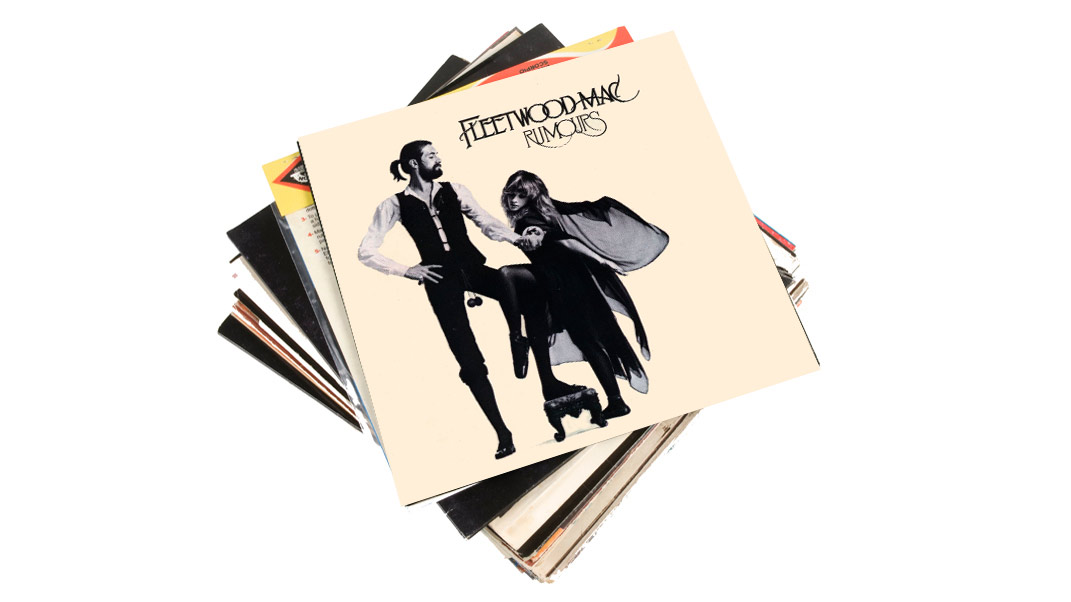
4. Fleetwood Mac - Rumours (1977)
“I know this is probably on quite a lot of people’s top 10 lists, but with our last album [2016’s Red Earth & Pouring Rain] we were listening to Fleetwood Mac a lot.
“They were an incredible band. So many good songwriters in the band, but I think also just sonically they were really fascinating. There are so many different weird things going on throughout that album.
“For us, they were a big influence sonically on how we wanted to explore our second album. The thing that amazes me is that they have that many gifted songwriters in one project and they still feel like one thing. It’s an insane album.”
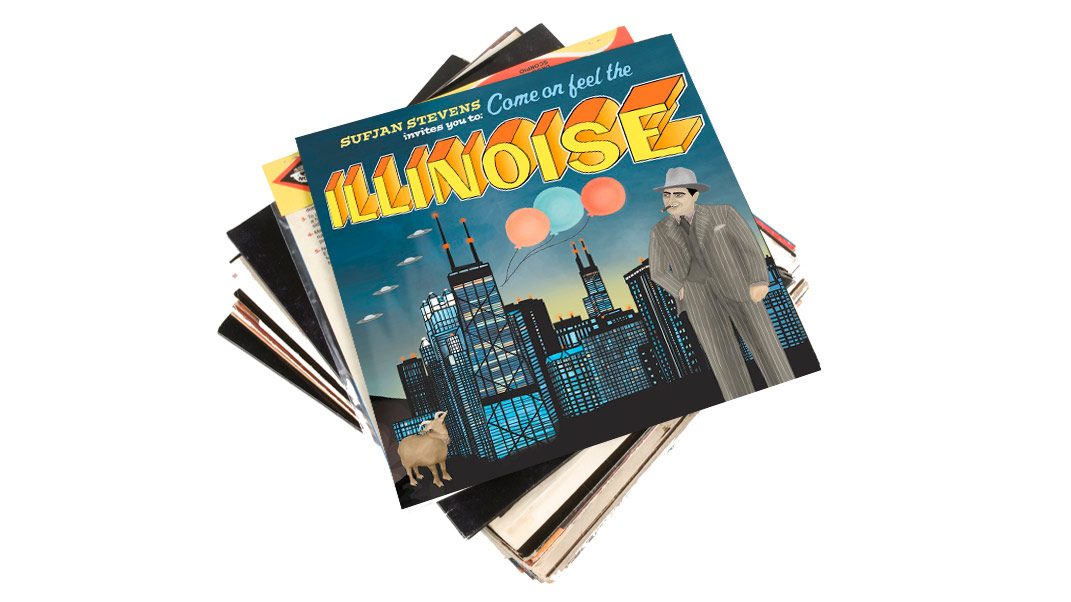
5. Sufjan Stevens - Come On! Feel the Illinoise! (2005)
“I think this is the best title of an album ever. Sufjan Stevens has influenced us over the years so much. Most recently even with his soundtrack stuff, like Call Me By Your Name. But I think the ambition on Illinoise is just incredible.
“I don’t know how to describe it. It’s like this mixture of high-school orchestra band and these unbelievably ambitious arrangements and yet these tiny little intimate acoustic moments. I don’t really feel like I’m listening to a band or a singer or a songwriter even when I’m listening to it. It really feels so orchestral and so magical.
“He’s a real artist and I think that’s something we’ve tried to incorporate into what we do is when we’re writing parts, not to be writing things based on being a guitarists or being a singer, but just being a general musician.
“That’s a big part of everything we do: not being too precious about what instrument or who plays what. It’s just like, ‘What do we want to hear? How do we do it?’”
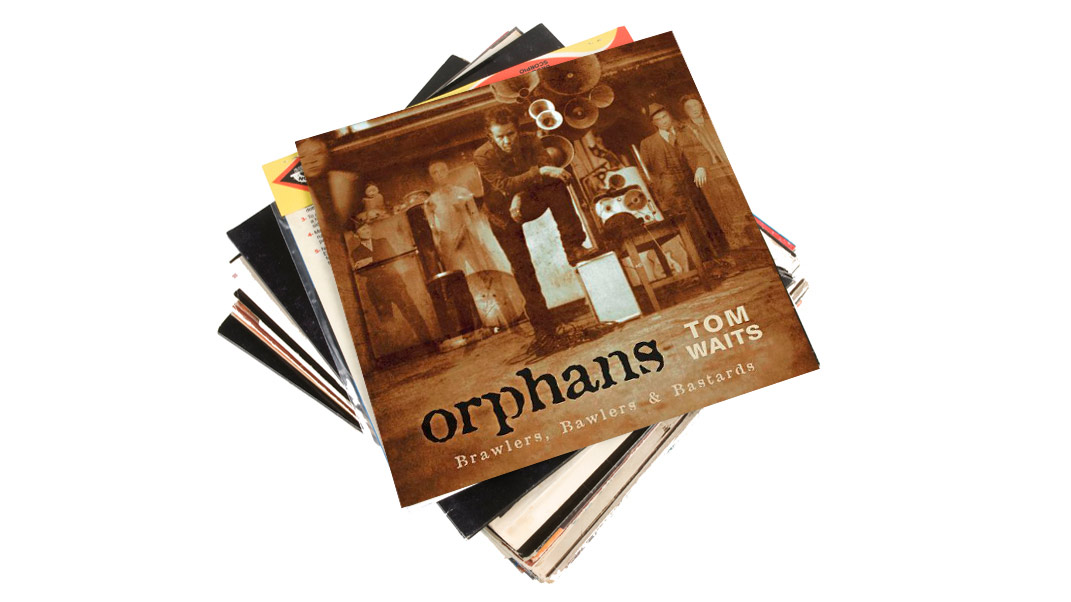
6. Tom Waits - Orphans: Brawlers, Bawlers & Bastards (2006)
“This is probably not a super common one, but I’m going to go for Brawlers, Bawlers & Bastards, because that was the one that introduced me to Tom Waits.
“I came really late to Tom Waits and Kev was like, ‘Dude, you need to study it up because this guy is important.’ He gave me this three-CD compilation and it’s a really amazing collection of songs. Quite a lot of them are just like B-sides that he was messing around with, but it was my introduction to what’s become quite a deep relationship now.
“I think what appealed to me first was it just felt like you’d stumbled into some bar really late at night and it was really smokey and just the best band you could ever dream of was playing all night.
“It had these sort of distorting vocals and drums that didn’t sound like drums but like some sort of distorted kitchen utensil. Nothing sounds like how it’s supposed to sound and it was just that to me was so exciting.”
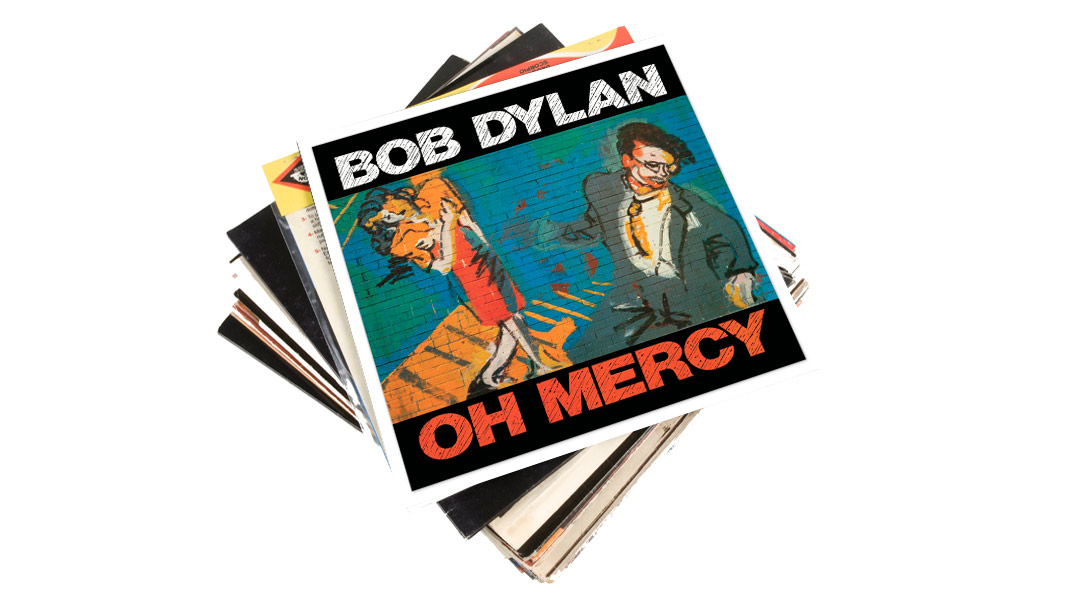
7. Bob Dylan - Oh Mercy (1989)
“There are so many Bob Dylan records that have made a massive impact, but I think Oh Mercy, on a production and lyrical level, is just an incredible piece of music.
“I think when I first heard Most Of The Time, I just remember feeling like I had never heard [him before]. It was a different environment to hear Bob Dylan songs in that I just wasn’t used to. I grew up listening to like Bringing It All Back Home with my dad, which is massively informative, but when I heard that same guy with Daniel Lanois steering it, it was just like, ‘Holy shit. You can do that!’
“It was just like another huge door opened into a world of production and the environment you can put all these incredible songs in.”
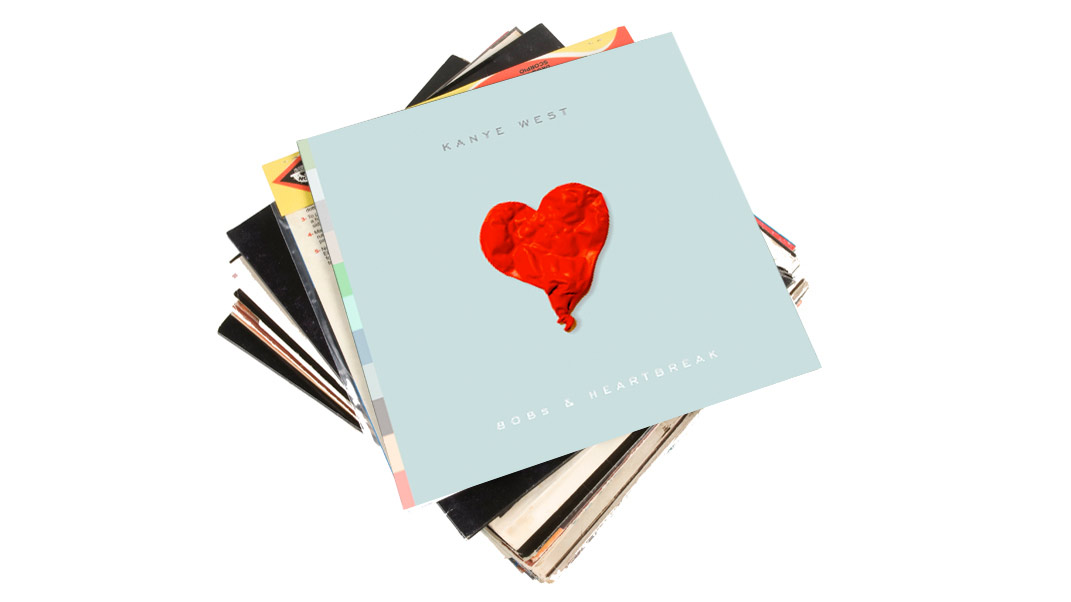
8. Kanye West - 808s & Heartbreak (2008)
“This record has been a pretty big deal for both of us for a long time, and on a tour across Europe a couple years ago we started talking a lot about how completely brilliant it is and about maybe working with 808 drum machines.
“They have such an iconic sound, and the ability to write tuned drum parts so easily opened a lot of doors for us making So That You Might Hear Me. On Fuel On The Fire, a tuned toms pattern basically ended up being the inspiration for the vocal line on the chorus.
“On a bunch of other songs, it became a really important rhythmic element. It definitely sparked our imaginations a lot. It’s so iconic in so many ways. Challenging, confrontational and unbelievably tender as well - using predominantly a vocoder and an 808.”
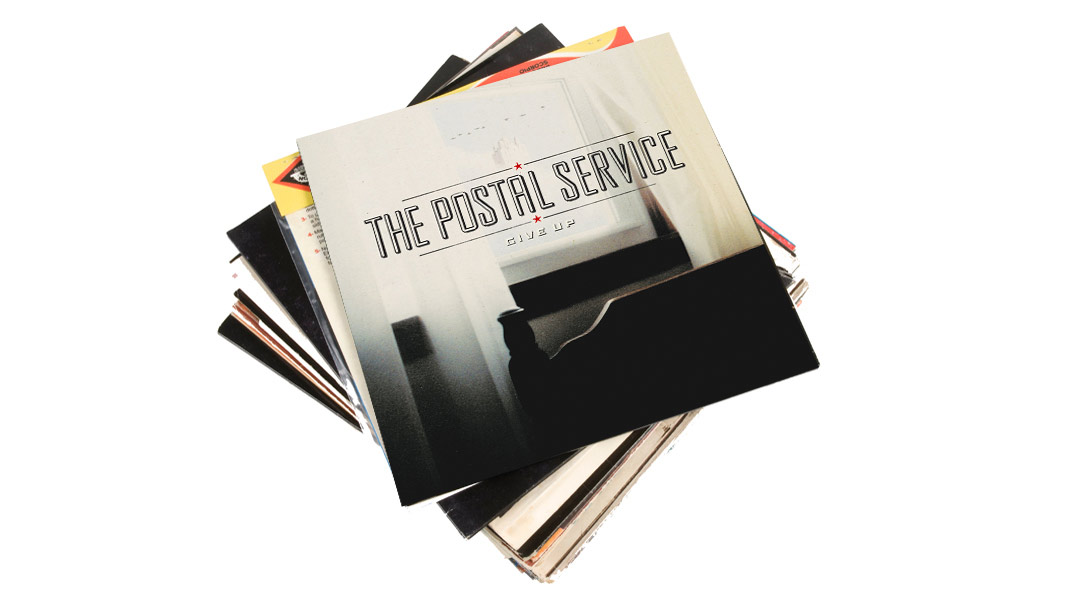
9. The Postal Service - Give Up (2003)
“This record is one we were both going back to more and more while working on the demos [of So That You Can Hear Me].
“I remember when it came out it was such a massive bolt of lightning to hear this glitchy synth led drum machine project from Ben Gibbard and Jimmy Tamborello. We [had] started exploring electronic instruments in more depth and albums like Give Up gave us the courage to do that - both of us messing around on drum machines and synths and just working on creating and manipulating at the studio with these new instruments.
“To some extent, I think we’ll always be a band primarily focused with trying to tell stories lyrically and musically. I think Give Up is an example of a record where no matter how intricate and dense the music becomes, it never clouds the songwriting and just enhances the songs.”
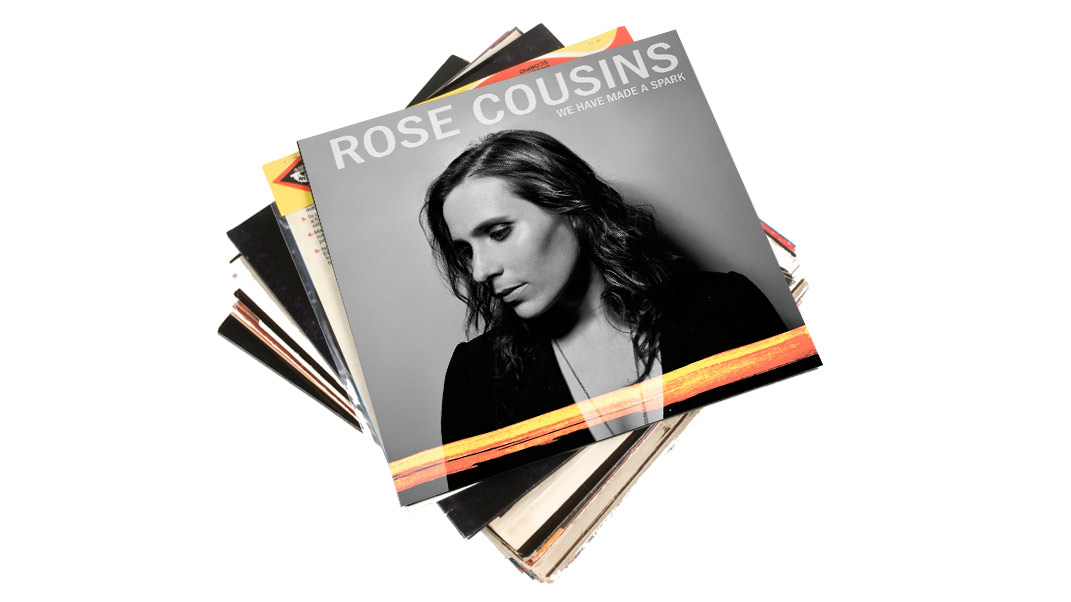
10. Rose Cousins - We Have Made A Spark (2012)
“We met Rose Cousins in Canada while we were out there touring a few years ago and she’s just incredible. She writes these consistently stunning songs and her voice just totally floors me.
“We were playing a festival together and she asked if we wanted to sing with her on the song For The Best and it was just a really magical experience.
“I think her song All The Time It Takes To Wait is one of my favourites of all time. Listening to We Have Made A Spark was a super-transformational moment for me and for us as a band.
“We even covered All The Time It Takes To Wait a couple years ago at Shepherds Bush Empire, with a bunch of our friends in other bands joining us, and it was maybe the most special moment I’ve ever been a part of on a stage.”
Matt is a freelance journalist who has spent the last decade interviewing musicians for the likes of Total Guitar, Guitarist, Guitar World, MusicRadar, NME.com, DJ Mag and Electronic Sound. In 2020, he launched CreativeMoney.co.uk, which aims to share the ideas that make creative lifestyles more sustainable. He plays guitar, but should not be allowed near your delay pedals.
